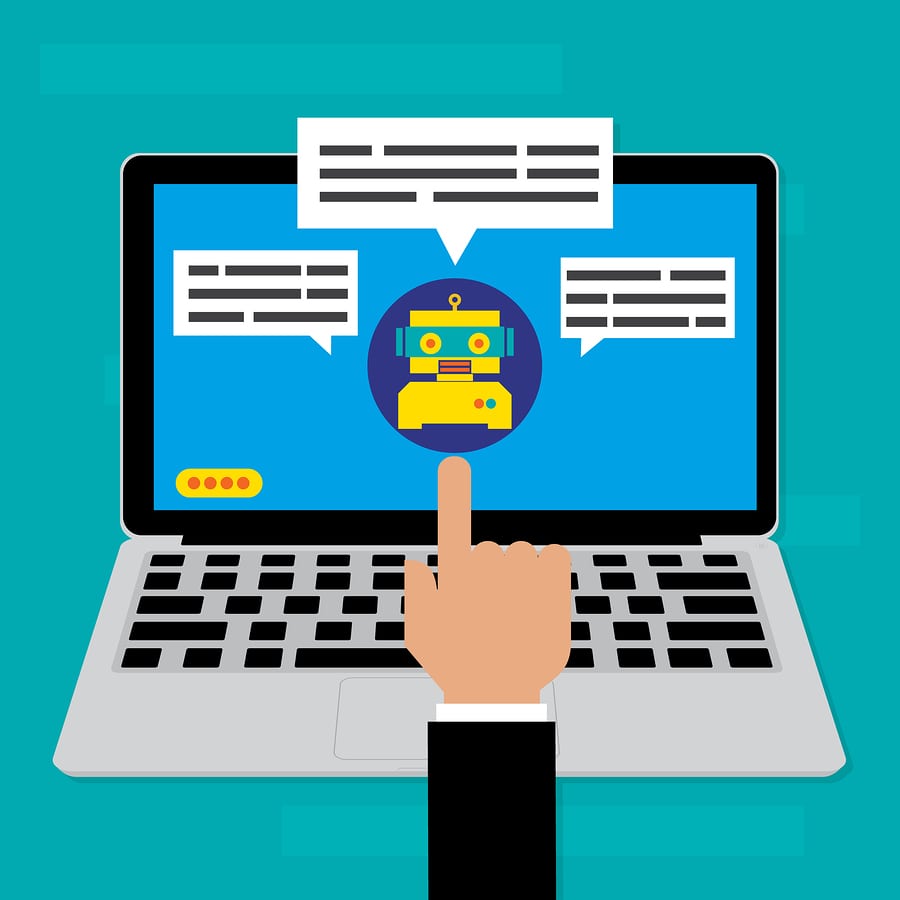Tips for Integrating Chatbots into your Marketing Strategy
We have all been on a website and had a chat box pop up and ask us if there is anything that we need help with. More often than not, the person who we start chatting to is not a person at all.
Chatbots are computer programs that have been designed to have a conversation with a person in a way that makes it seem they are talking to another person. How natural the conversation will be depends on the sophistication of the chatbot technology.
Chatbots are useful tools for all kinds of businesses and can provide a number of marketing benefits. They are easy to design too, especially with an intuitive chatbot builder at hand.
This article will explain four useful tips for integrating chatbots into your business marketing strategy.

Choose the right chatbot to suit your needs
The first thing you must do when planning to integrate chatbots into your marketing strategy is to identify your goals. The type of chatbot that you will need to use will depend on the objectives that you set out to achieve. A simple chatbot can be used to answer frequently asked questions. They are easy to design and implement and will recognize keywords and phrases in questions and will be able to give the appropriate answer from a pre-programmed list. Booking.com uses a relatively unsophisticated chatbot to answer FAQs about hotel check-in policies, payment options and other basic information. The chatbot’s answers use natural language like “How can I help you?” or “Is there anything else today?”
More complex engagements require a more highly sophisticated ai chatbot which is able to learn from dialogues in order to engage with customers at a far superior level. AI chatbots can be used at every stage of an outreach marketing campaign. AI chatbots are able to evaluate leads and determine whether that lead is a potential customer. Not all people who show interest in your product or visit your website are genuine potential customers and so a sophisticated AI chatbot are able to hone in on the best quality leads which will enable you to more accurately target your marketing campaign. Once a lead has been determined to be a potential customer, chatbots can be used to make the initial sales approach and analyze customer responses.
Sophisticated AI chatbots will learn what approach customers react positively to and are designed to adapt accordingly.
Use chatbots for 24/7 customer enquiries
As in the case of Booking,com as explained above, one of the easiest but also most effective ways to use chatbots is to answer customer enquiries. One huge benefit of this is that you can respond to customers any time of the day without having to hire extra staff to deal with out of hours enquiries. A simple chatbot can be integrated into your business’s website through a built-in messenger tool and customers can make direct enquiries without having to email or call you. Customers have been shown to much prefer the back and forth interaction with a chatbot rather than a traditional FAQ page on your website. Facebook offers a chatbot service to businesses through the Facebook Messenger program and can be used either on their Facebook business page or integrated directly onto their website. This service can answer customer queries about operating hours, give online quotes, and take food orders for restaurants that offer delivery services.
Use chatbots for fun customer interaction
Chatbots can be used for far more than just given information or answering customer enquiries and one great way to integrate chatbots into your marketing strategy is to create an enjoyable customer experience. You only need to look at how people chat to Siri or Alexa to see that a conversation with a chatbot can be really fun. A fun chatbot experience can help to create a good feeling towards your brand or business. Fashion brands use visually-aided chatbots to enhance the customer experience. The chatbot assists online shoppers through each step of the process in the same way a stylist would, asking questions like “What kind of collar do you prefer?” and then showing the customer different photos to choose from which would then take the chatbot onto the next step, and so on until the perfect fashion item is chosen. Visually-aided chatbots are also great for recipe websites where users can choose different ingredients and the chatbot can suggest other compatible ingredients and popular recipes. Identifying what your customers would enjoy and designing your chatbots accordingly is key to integrating chatbots into your marketing strategy.
Match the chatbot’s tone with your products or services
Whilst the whole point of chatbots is to imitate a person, it is important that it is designed to communicate in a way that is in fitting with your business and the chatbot’s purpose. What this means in practice is that a chatbot should speak in the same way that you or your employees would speak if it was you who was having the interaction. For recipe or fashion websites, the tone of the chatbot can be informal and even playful. Added little remarks will make the customer experience more fun. Take the recipe and fashion website examples, a little comment from the chatbot like “That sounds delicious!” or “That style would really suit you!” can enhance the experience. In the Booking.com example, it is not necessary to add little comments like these as people are just looking for important information and could be annoyed by unnecessary chatbot exclamations. Some businesses require chatbots with a far more formal tone in order to convey a more serious message or service. Lawfirms, for example, who use chatbots for client enquiries should integrate polite and informative chatbots that communicate with clients in the same way that anybody working at the law firm would. Likewise, visually-aided chatbots should not be used for businesses like these where a serious and professional impression needs to be made.

Chatbots are a brilliantly innovative way to enhance your customer experience and there are a huge number of ways to integrate them into a comprehensive marketing strategy. The evolution of chatbots is changing how businesses reach out to potential new customers and how businesses and customers engage with each other. Identify your chatbot needs and integrate a chatbot that meets your marketing objectives and fits your business’s message.



